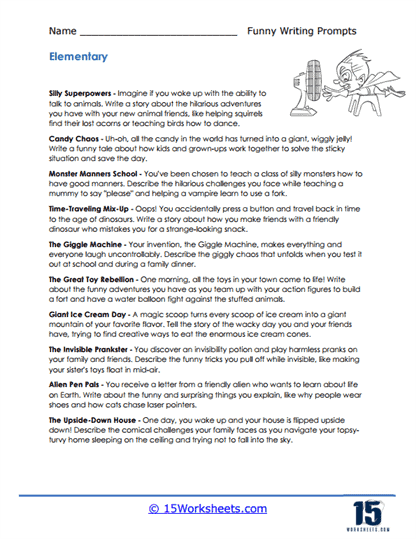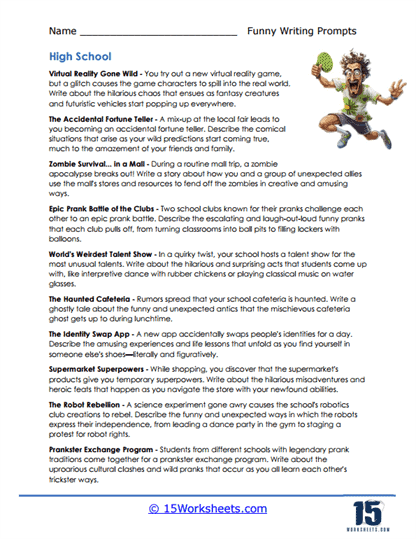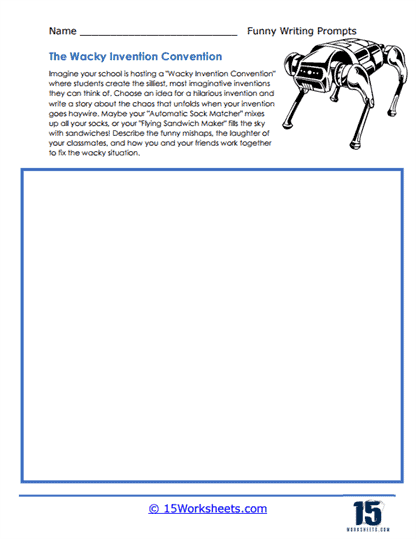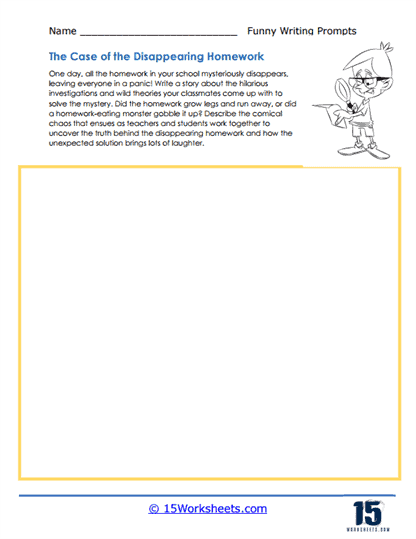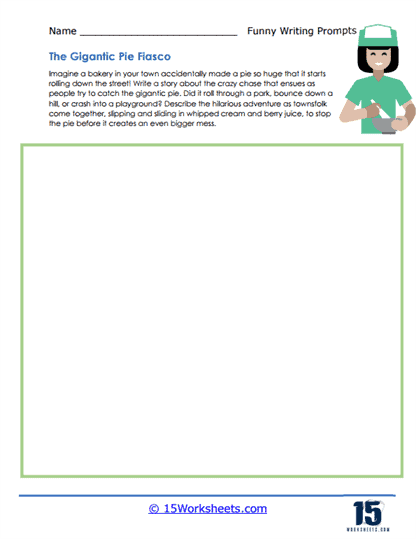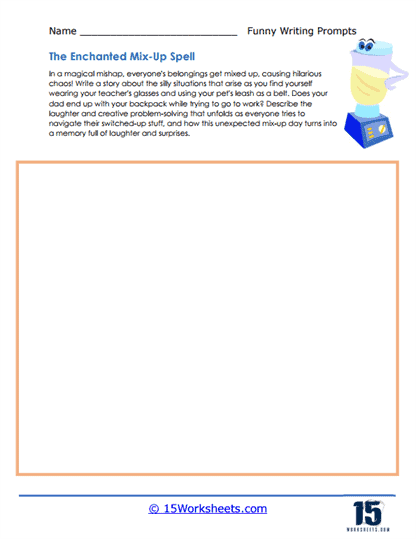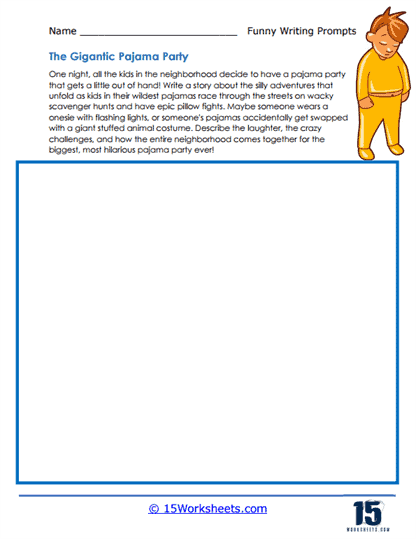Funny Worksheets
About These 15 Worksheets
Humor is a universal language, bridging cultures, ages, and experiences. In the world of literature and writing, humor becomes a potent tool, capable of engaging readers, provoking thought, and fostering creativity. At the crossroads of humor and literary exercises are “funny writing prompts.” These prompts, infused with humor, whimsy, and the unexpected, offer students a delightful yet profound medium to hone their writing skills, tap into their creativity, and refine their communication capabilities.
Funny writing prompts are essentially guiding statements, questions, or scenarios designed to inspire comedic or light-hearted stories, essays, or reflections. Unlike more serious or straightforward prompts, they introduce an element of surprise, absurdity, or irony, challenging writers to approach the topic with wit, imagination, and a playful spirit.
How Do They Boost Creativity?
Engaging the Imagination – Humor often stems from exaggerated realities, unexpected twists, or unique juxtapositions. To craft a story from a humorous prompt, students have to let their imagination run wild, thinking outside the box and venturing beyond the realms of the ordinary.
Enhanced Freedom of Expression – The very nature of comedy is boundary-pushing. When engaged with a funny writing prompt, students might feel less restrained, giving them the license to be more expressive, quirky, and original in their narrative style.
Diverse Perspectives – Humor can stem from various angles, whether it’s irony, slapstick, satire, or dark comedy. Responding to funny prompts allows students to experiment with these different genres, helping them understand and appreciate the multifaceted nature of humor.
Mood Enhancement – Engaging with humor can elevate one’s mood. A jovial mindset can reduce inhibitions, making the brainstorming and writing process flow more naturally and fostering genuine creativity.
How They Improve Your Ability To Communicate
Learning the Nuances of Tone – Crafting humor requires a keen understanding of tone. Whether it’s sarcasm, deadpan humor, or light-hearted jesting, students learn how subtle shifts in tone can drastically alter the message’s interpretation, a crucial skill in effective communication.
Connecting with the Audience – Humor is a powerful tool for engagement. By working with funny prompts, students learn the art of capturing an audience’s attention and maintaining their interest, making their writing more impactful and relatable.
Enhancing Vocabulary and Expression – Delivering a joke or humorous narrative often relies on precise word choices and timing. Students become adept at choosing the right words to convey humor effectively, enriching their vocabulary and refining their expression.
Encouraging Conciseness – Comedy often depends on timing and punchiness. This teaches students the importance of being concise, delivering their message with clarity and without unnecessary embellishment.
Developing Empathy – To be effective, humor must resonate with its audience. Crafting humorous narratives requires understanding what others find funny, fostering empathy and a deeper understanding of diverse perspectives.
Examples of Funny Writing Prompts
Aliens land on Earth, but instead of seeking leaders or scientists, they demand to speak to the world’s best pastry chef. Why?
This prompt introduces an absurd scenario, pushing students to imagine a whimsical intergalactic narrative. It encourages creativity (what could aliens possibly want with a pastry chef?) and fosters understanding of narrative structure and pacing to deliver humor.
Write a product review for an invisible, inaudible, and intangible “pet” you just bought.
Here, students tackle the challenge of describing something indescribable, enhancing their descriptive skills and ability to engage readers through implied humor and creative nuances.
A wizard turns you into a household object during the daytime. Narrate a day in your life.
Embodying an inanimate object introduces a unique perspective, pushing students to think creatively about mundane daily occurrences, fostering imaginative thinking and descriptive prowess.
Funny writing prompts serve as a refreshing deviation from conventional writing exercises. They not only inject joy into the literary process but also equip students with valuable skills, from creative thinking to nuanced communication. Engaging with humor challenges students to be expressive, perceptive, and imaginative, ensuring that while they might be laughing on the surface, deeper cognitive gears are in motion, refining their abilities as both writers and communicators. By merging the delightful world of comedy with the structured realm of writing, these prompts offer a holistic approach to literary education, proving that sometimes, the most profound learning stems from laughter.

